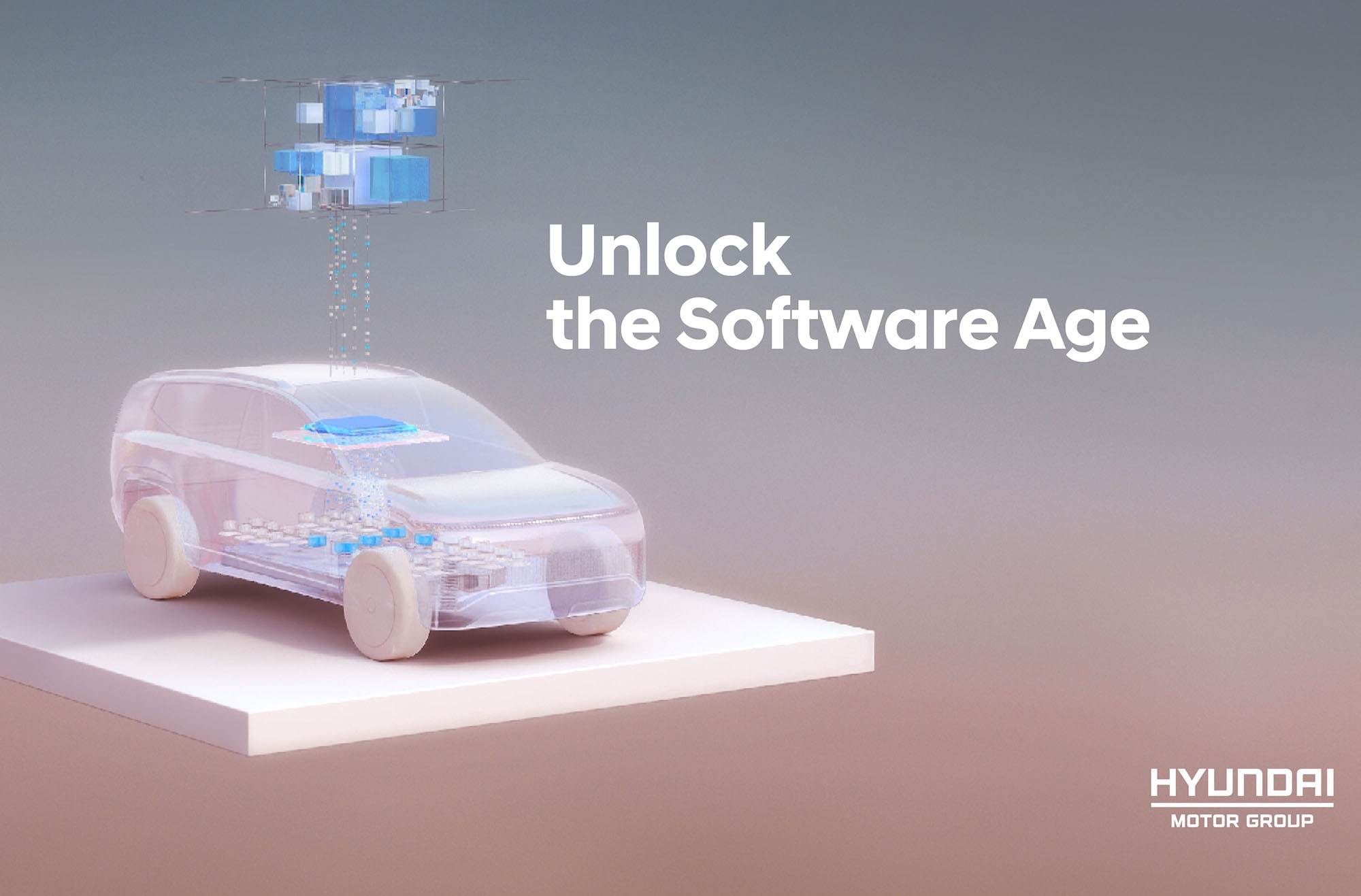Hyundai Motor Group, which is driving a software-driven transformation for its Group brands (Hyundai, Kia and Genesis) today announced its ‘Software-defined Everything’ (SDx) strategy, which aims to transform all moving devices, fleets and ecosystems into valuable assets through advanced software and AI.
Through its SDx strategy, the Group seeks to develop a mobility ecosystem that meets the needs of users anytime and anywhere. To achieve this, the Group is transitioning everything into a software-defined approach, from vehicle development to building the entire mobility ecosystem. It believes software and AI are enablers of achieving this vision through providing holistic user experience without limitations and is dedicated to delivering mobility services and solutions that prioritize convenience and safety.
Starting off with SDVs
The Group’s strategy begins with developing ‘software-defined vehicle’ (SDV). This means to incorporate software development methods to automotive development which means to decouple hardware and software to enable independent updates and advancement of each. The network and controllers are designed within the SDV framework, enhancing development agility and efficiency. This increases the flexibility and scalability of the vehicle development system, enabling faster updates of user-centric features and continuous improvement of device.
To enhance the user experience, the Group plans to develop a new infotainment system that supports a vehicle app market. They will also provide software development kits (SDKs) for developers to create killer apps. Additionally, the Group aims to integrate its own large language model (LLM) into their AI assistant and navigation system. This integration will enable more natural and convenient user interaction and experience with enhanced user safety.
As SDVs become more common and standardized, management of large-scale fleets will become easier and more efficient. Beyond individual vehicles, the Group is expanding its software solutions to include software-defined fleets for businesses. These solutions offer customized fleet management services, real-time data analytics and user-friendly administrative interfaces, allowing B2B customers to operate vehicles more efficiently and address real-time issues. The Group will offer vehicle data, advanced fleet management services, data analytics and valuable insights to B2B customers of different hardware and software requirements, all without the need for separate telematics devices.
Aiming to evolve vehicles into AI machines
As vehicles, fleets and mobility in general gets defined and developed by software, they will then get AI-defined. The Group envisions vehicles evolving into ‘AI machines’ that continuously learn to better serve customers and transforming vehicles into AI machines that continuously learn to better serve customers and deploy optimised machine learning operations (MLOps).
Transforming vehicles into AI machines will enable the Group to automate maintaining and updates of vehicle, simplify or eliminate tedious tasks, provide transparent data, prevent and promptly address potential issues, personalize user experiences and accelerate the enhancement of services and solutions to deliver added value for users. This will contribute to stable and efficient operation of not only devices, but also mobility, logistics, and overall urban operating system.
The ultimate goal is to create a concept called ‘Cloud Transportation’ where software, AI-defined devices and mobility come together to create a mobility ecosystem where transportation is easily accessible to everyone. This concept, referred to as ‘transportation-as-a-service,’ allows users to freely access transportation and mobility services as needed. Everyone, along with devices and city infrastructure, will be interconnected within an ecosystem, enabling on-demand access to transportation and automatically increasing the intelligence of mobility solutions over time. The Group is currently operating various advanced mobility services, such as demand-responsive transport and self-driving taxis, and collecting data to further advance SDV technology, including autonomous driving, to establish a foundation for Cloud Transportation.
“As a mobility solution provider, our vision goes beyond vehicles,” said Chang Song, President and Head of Hyundai Motor Group’s SDV Division. “It’s about empowering a mobility ecosystem. We see movement as a new source of knowledge and innovation. And our solutions and devices make that knowledge universally useful.”
The Group presented its recent partnership with Tenstorrent, a company specializing in designing neural processing units (NPUs), further enhancing the Group’s commitment to software and AI advancements.
“Tenstorrent is building a silicon future that you can own. Our hardware and open source software will let you build the products you want,” said Jim Keller of Tenstorrent. “Hyundai is building cars, factories, robots, autonomy, infotainment and smart systems. Tenstorrent is aligned with every part of that vision. We’re excited to join Hyundai in gaining the independence to win the high-stakes technology race.”
ALSO READ:
Kia reveals five ‘Platform Beyond Vehicles’ concepts at CES 2024



